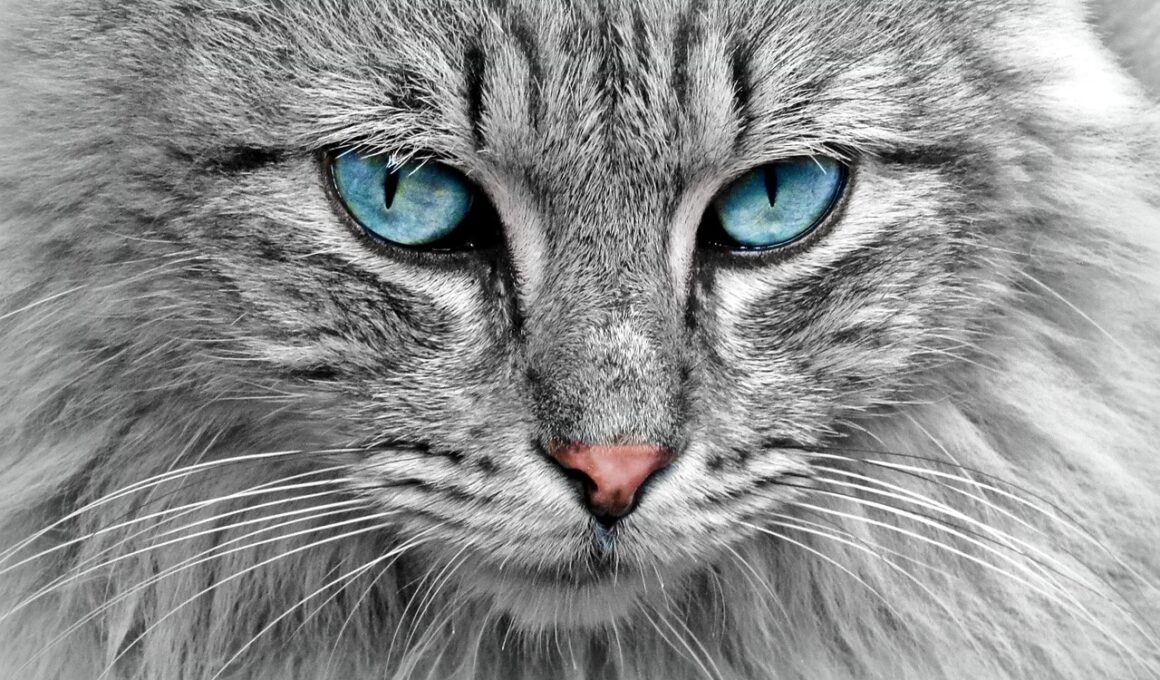The Impact of Diet and Supplements on Cat Immune Resilience
When it comes to maintaining your cat’s health, nutrition plays a crucial role, particularly concerning immune resilience. A well-balanced diet should encompass all necessary nutrients, including proteins, fats, carbohydrates, vitamins, and minerals. Cats are obligate carnivores and require high-quality animal-based protein sources. Supplements can complement their diet by offering essential nutrients that might be lacking. Additionally, it’s important to remember that the quality of ingredients matters significantly. Low-quality foods often contain fillers and artificial additives that can negatively impact the immune system. Furthermore, natural supplements, such as omega-3 fatty acids and antioxidants, can offer added benefits by reducing inflammation and supporting overall health. Consider consulting your veterinarian before adding any new supplements. They can recommend the right products based on your cat’s specific health needs. Regular monitoring of your cat’s weight and health status ensures dietary adjustments can be made as necessary. Ultimately, combining high-quality food with appropriate supplements can significantly enhance your cat’s immune response, making them more resilient to infections and illnesses.
Nutrients Critical for Immune Function
A variety of nutrients are essential to support optimal immune function in cats. Proteins serve as building blocks for immune cells; thus, ensuring that your cat receives an adequate amount of protein is vital. Fatty acids, particularly omega-3 and omega-6, help modulate inflammation and promote immune health. Vitamins like A, C, D, and E each have specific roles in enhancing immunity. For example, vitamin C plays a vital role in collagen formation and acts as an antioxidant. Zinc and selenium are also important trace minerals that support the immune system. Furthermore, probiotics can enhance digestive and immune health by balancing gut flora. Fermented foods or probiotic supplements can be excellent sources. Regularly incorporating these nutrients into your cat’s diet helps maintain a robust defense against pathogens. Furthermore, always ensure that any supplements you consider are specifically formulated for cats. This attention to detail will ensure that your cat receives the correct dosages and forms of nutrients found in cat-focused products, leading to a healthier immune system and improved wellbeing.
For aging cats, the importance of nutrition and supplements becomes even more pronounced. As cats age, their immune system may weaken, making them more susceptible to various diseases. In addition to ensuring that older cats receive adequate protein and specific vitamins, antioxidants can play a significant role in mitigating oxidative stress. Antioxidants work by neutralizing free radicals, which can cause cellular damage and contribute to aging. Ingredients like blueberries, green tea extract, and turmeric can be beneficial. In some cases, older cats may also have specific health concerns such as kidney issues or diabetes that require tailored nutritional strategies. Therefore, careful evaluation of your senior cat’s diet and the incorporation of suitable supplements can lead to better health outcomes. This comprehensive approach helps strengthen their immune system, allowing them to age gracefully without excessive health complications. Consulting with your veterinarian is essential in crafting an appropriate diet plan for senior cats. Regular vet checkups can monitor their health and adjust dietary needs as necessary.
The Role of Hydration
Hydration significantly influences a cat’s health and its immune system. Cats often don’t drink adequate amounts of water, which can lead to dehydration and urinary tract issues. These health problems can weaken overall immunity, making hydration even more critical. Providing fresh water at all times encourages cats to drink more. Additionally, incorporating wet food in their diet can increase moisture intake. Foods with high moisture content help maintain organ functions and support the immune system. Offering options like chicken broth or specially formulated wet food can entice cats to stay hydrated. In some instances, pet fountains can attract cats to drink more often due to their preference for running water. Always monitor your cat’s hydration status, as dehydration can lead to serious health issues. Keep a close eye on behaviors that may indicate dehydration, such as lethargy or dry gums. By ensuring your cat is well-hydrated, you significantly bolster its overall health, thereby enhancing its immune resilience against infections and other diseases in the long run.
Incorporating holistic practices alongside proper nutrition provides additional avenues for boosting your cat’s immune system. Holistic methods often involve stress reduction, which can profoundly affect a cat’s health. Stress has been shown to suppress immune function, making your pet more susceptible to illness. Creating a comfortable environment, providing enrichment activities, and ensuring regular playtime can alleviate stress. Cats are creatures of habit, and disruption to their daily routines can increase their anxiety levels. Implementing a consistent feeding schedule and exercising patience helps establish a sense of security. Furthermore, exploring calming supplements like L-Theanine or herbal options can be beneficial. These approaches help keep your cat relaxed and less stressed. Ultimately, addressing both nutritional and environmental aspects lays the foundation for a strong immune system. A healthy, happy cat is more resilient against illness. Consulting with your veterinarian about holistic practices can provide additional insights into improving your cat’s overall wellness without compromising their health. Combining traditional care with holistic practices yields the best long-term results in preserving your pet’s health.
Monitoring and Assessing Cat Health
Regular monitoring of your cat’s health is essential to ensure that their dietary and supplement regimen is working effectively. Keeping track of changes in weight, energy levels, and overall behavior is crucial. Rapid weight loss or gain can signify underlying health issues that may require immediate attention. Changes in appetite or litter box habits can also indicate health concerns. Observing your cat for signs of illness will help catch potential issues early on. Scheduled veterinary visits should be a priority, particularly for older cats. Vet check-ups allow for professional assessments regarding diet and the effectiveness of any supplements administered. Your veterinarian can provide tailored advice based on current health status and any emerging issues. Furthermore, keeping a health journal with notes on your cat’s eating habits, energy levels, and health changes can provide valuable information during vet visits. This record can aid in making necessary dietary adjustments and evaluating whether specific supplements are beneficial or need reevaluation. By maintaining vigilant observation, you can ensure your cat thrives nutritionally and has a strong immune system.
Ultimately, the combination of a balanced diet, suitable supplements, and holistic practices contribute significantly to your cat’s immune resilience. A healthy immune system is critical to preventing infections, managing stress, and maintaining overall physical health. Each cat is unique; therefore, customizing their diet and supplement plans based on their individual needs is advantageous. The right combination of nutrients strengthens their immune defenses, helping them resist illness, promote longevity, and enhance the quality of their life. Investing in your cat’s nutrition equips them with the tools necessary to combat illnesses. Emphasizing high-quality ingredients, hydration, and stress management creates a solid foundation for your cat’s wellbeing. Continuous education on feline nutrition and supplementation enhances your ability to make informed decisions. Collaborating with a veterinarian to create personalized plans ensures your cat enjoys a vibrant, healthy life. Ultimately, maintaining your cat’s health through proactive nutritional choices generates long-lasting benefits. With attention and care, your feline companion can achieve a robust immune system, ensuring countless happy years together.
Investing in your pet’s nutrition is one of the best choices any cat owner can make. Cats depend on the quality and variety of their diet to maintain their health and vitality. As new research on feline nutrition emerges, options continue to expand. Supplements now cater to specific needs such as immune support, digestive health, and more. Understanding the different ways to boost your cat’s immune resilience, including tailored diets, is essential for every cat owner. Holistic practices, such as creating stress-free environments, further support health. Integrating these insights into everyday routines can significantly enhance your cat’s quality of life. Creating a loving bond with your cat, enriched by nutritional care, is fulfilling. Consequently, providing the right foods and supplements ensures that your feline friend remains healthy and active. Knowledge about your cat’s dietary preferences and needs empowers cat owners to take a proactive stance on their pet’s health. Education on immunological requirements will also support responsible pet care. Your cat depends on you to make decisions about their health and wellbeing, leading to a longer and happier life.


